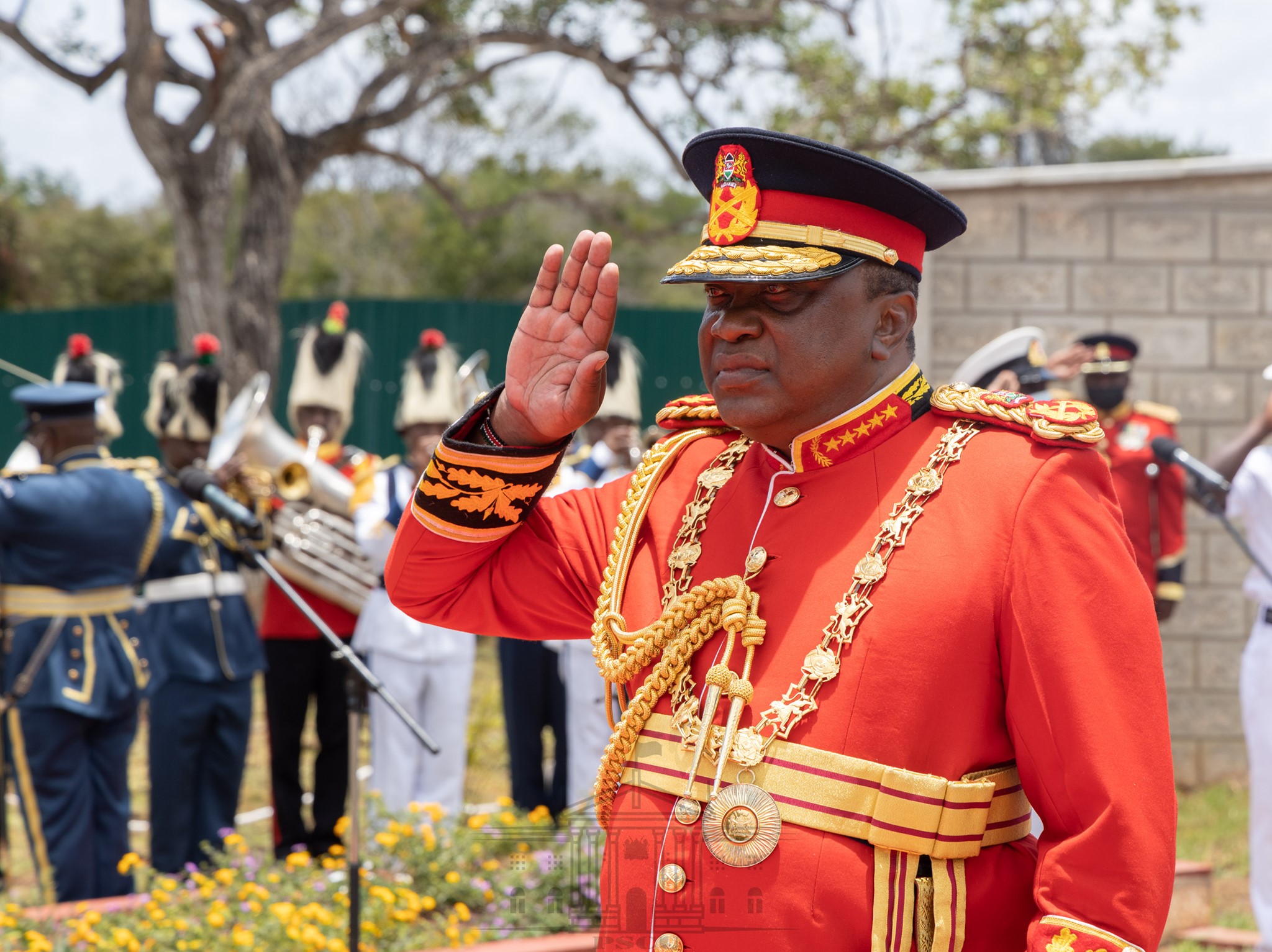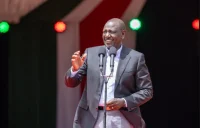National Treasury Cabinet Secretary Ukur Yattani on Thursday, April 7 presented before Parliament the country’s Ksh3.3 Trillion budget for the next financial year.
He noted that Kenya had received approval from EAC member states to present its budget two months ahead of schedule. This is due to Kenya having General Elections scheduled for August 2022.
Yattani emphasized that the budget was geared to drive accelerated economic recovery from the effects of Covid-19 as well as to protect low and middle income earners in the country. Below are key highlights from the budget address;
Economic Outlook
“In 2022, the economy is projected to stabilise at 6.0 percent supported by the prevailing stable macroeconomic environment, favourable weather conditions to support agricultural output and drive food processing (manufacturing) and the continued recovery in industry and services.”
“Covid-19 vaccinations, which targets 26 million people above 18 years by the end of the year, is expected to allow people greater interactions in business activities.”
Fiscal deficit
“We plan to reduce the level of fiscal deficit from 8.7 percent of GDP in the current budget to 7.5 percent of GDP in the financial year 2021/22 and further to a 3.6 percent of GDP in the financial year 2024/25.”
Local Manufacturing
“In order to promote local manufacturing of pharmaceutical products, I propose to introduce VAT exemption on inputs used in the manufacture of medical ventilators and breathing appliances.”
Government Bonds
“We shall establish an electronic over the counter secondary market platform for government securities. This platform will help in deepening our domestic debt market. We expect operations of the over the counter to be in place by June 2022.”
Kenya Airways
“Kenya Airways plays an important role in the economic development of this country. The government will allocate funds for its restructuring costs.”
Government debt burden
“I’m confident we are presenting a budget that is reflective of the current realities.”
Economic Stimulus Programme
“Building on the gains made under the first and second phase of the Econimc Stimulus Programme, the government is implementing the third phase which is designed to accelerate the pace of the economic growth.”
“In the third phase, the government is implementing 13 strategic interventions including the third phase of Kazi Mtaani programme to create employment for over 200,000 youths across the country, construction of additional 50 new level 3 hospitals in non-covered and densely populated areas across the country to enhance medical coverage support the livelihoods of farmers in the sugar belt, provision of fertilizer subsidy to small scale tea farmers and completion of the ongoing interventions in the coffee sub-sector. ”
Economic risks
“The economic outlook may be affected by emerging domestic and external risks. On the domestic front, re-emergence of COVID-19 variants and possible adverse weather conditions could reverse the projected economic recovery.”
“On the external front, the ongoing conflict in Eastern Europe has created uncertainties that will affect the global economic outlook through disruption of supply chains, rising global oil prices and increased inflationary pressures.”
Expenditure
Education
The government has increased allocation to the education sector to Sh544.4 billion.
- Pre-primary education will receive Sh12 billion in the proposed budget.
- Sh2.5 billion will be used for teacher recruitment.
- Sh64.4 billion will be used for free secondary day education and NHIF cover.
- Sh5 billion for exam fees waiver for Grade 6 and Class 8 pupils.
- Sh1.9 billion will go towards school feeding programme.
- Sh1.2 billion for training of teachers on CBC.
- Sh46 billion for construction of CBC classrooms.
- Sh310 million for digital literacy programme.
- Sh2.8 billion for TVET
- Sh294.7 billion for TSC.
Healthcare
The government will allocate a total of Sh146.8 billion for healthcare.
- Sh62.3 billion for Universal Health Coverage (UHC).
- Sh7 billion for purchase of Covid-19 vaccines.
- Sh4.1 billion for maternal healthcare.
- Sh5.2 billion for the purchase of equipment.
- Sh16.2 billion to fight HIV/Aids, malaria, and tuberculosis.
- Sh1.8 billion to provide medical cover for elderly and disabled persons.
- Sh5.2 billion vaccines and immunisation programmes.
- Sh18.1 billion for Kenyatta National hospital.
- Sh11.7 billion for Moi Teaching and Referral Hospital.
- Sh7.7 billion for Kenya Medical Training College (KMTC).
- Sh2.9 billion for Kenya Medical Research Institute (KEMRI).
- Sh1.1 billion for the construction of pediatrics and burns centre.
- Sh1.3 billion for the construction of a cancer centre at Kisii Hospital.
- Sh1.2 billion for procurement of family planning.
- Sh300 million for radiotherapy equipment.
- Sh619 million for procurement of equipment for the blood transfusion centre.
National Security
The Treasury has allocated Sh317.8billion for internal security, national defense the National Intelligence Service (NIS).
- Sh128.4 billion will go to defense.
- Sh46.4 billion for NIS and Sh102.2billion for police and prison services.
- Sh10.7 billion for leasing of police motor vehicle and Sh1billion for the police modernisation programme
- Sh1billion for National Communication System.
- Sh335 million for national forensic laboratory.
- Sh4.8billion for the insurance of police service and prison officers.
- Sh2.3billion for Group personal insurance for police service and prison
- Sh1billion for the National Integrated Management System.
Equity, poverty reduction, women and youth empowerment
- Sh13.1 billion for the National Youth Service.
- Sh2.2 billion for the Kenya Youth Empowerment and Opportunities Project.
- Sh175 million for the Youth Enterprise Development Fund.
- Sh170.0 million for the Women Enterprise Fund.
- Sh92.0 million for the Youth Employment and Enterprise Fund.
Digitalization of the economy
- Sh15.6 billion to fund initiatives in the Information, Communication and Technology sector.
- Specifically, Sh620 million for Government Shared Services.
- Sh5.2 billion for the Horizontal Infrastructure Phase I at Konza Technopolis City, and Sh3.8 billion for Konza Data Centre and Smart City Facilities.
- Sh2.7 billion for maintenance and rehabilitation of last mile connectivity network.
- Sh1.2 billion for maintenance and rehabilitation of the National Optic Fibre Backbone Phase II Expansion Cable.
- Sh1.4 billion for installation and commissioning of Eldoret-Nadapal Fibre Optic Cable.


![To receive compensation, the Policyholders Compensation Fund (PCF) will require Resolution clients to provide proof of their claims. [Photo/ BBC]](https://businesstoday.co.ke/wp-content/uploads/2022/04/107214078_newnotes-1-150x150.jpg)







Leave a comment